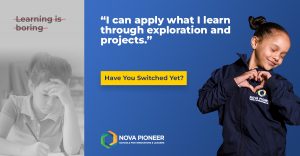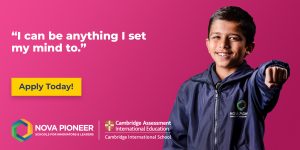In Japan, the word ‘bento’ is associated with the word for ‘convenience.’ The bento box is a convenient way to carry a home-packed lunch—or any meal, but especially a single meal eaten during work or school day. The earliest take-along meals date to the 5th century in Japan, when farmworkers,
In Japan, the word ‘bento’ is associated with the word for ‘convenience.’ The bento box is a convenient way to carry a home-packed lunch—or any meal, but especially a single meal eaten during work or school day. The earliest take-along meals date to the 5th century in Japan, when farmworkers, hunters, or soldiers would pack food to take along for the day. These humble on-the-go meals eventually evolved into the boxed lunch that would be dubbed as the bento box by roughly the 12th century. They would often contain rice and dried meats.
By the 16th century, the bento box became more refined. Its use spread from work-related pursuits to cultural excursions such as visiting the theatre or attending outdoor activities and festivals. At this point, the boxes began to feature beautiful designs and lacquer work. Books began to be published about what to cook and how to pack bento boxes for special occasions.
Today, the tradition of the bento box is still widely practiced in Japan, but its popularity has spread around the world. Today’s bento boxes are typically designed with multiple compartments for rice, protein, fruits, and vegetables. Each tray can be easily removed for eating and cleaning. People can fill their bento boxes with any type of food they like, including snacks and sandwiches, but the main ingredients in Japan tend to revolve around the basics like rice, meat, and vegetables.
The bento box concept has spread all over the world along with many other aspects of Japanese culture. Many people fill their boxes with ingredients they happen to have on hand, such as leftovers. Unlike Western-style lunch boxes, the bento box is a well-organized system with various compartments and an easy-to-clean design. Here, we’ll explore this useful Japanese custom and why you might want to adopt bento box use.
What Are Some Benefits of Using a Bento Box?
Although you might be partial to your old lunchbox and thermos or have gotten used to carrying a sack lunch or dining out, there are some decided advantages to using a bento box to transport your lunch each day. There are many benefits of bento box use, such as:
Bento Boxes Are Environmentally Friendly
A bento box is a sustainable feature because you can use it over and over again. Each compartment is designed to hold different ingredient amounts. There is no need to use disposable plastic bags because small items such as crackers or raisins can be stowed in a small lidded container that fits inside the larger box. Upon returning home, each container can be washed and reused the following day.
Bento Boxes Keep Foods Fresh
Each bento box container is lidded and seals tightly; this helps keep food fresh and tasty. Depending on what types of food you’re packing for the day, you may wish to include a small ice pack in your bag to keep food cool, especially during the summer months.
Bento Boxes Are Easy to Clean
Many of today’s bento boxes and their containers are easy to clean and even dishwasher safe. If you don’t prefer to hand wash them, you can generally place them on the top rack of your dishwasher for cleaning. Of course, always check each box to ensure it can be cleaned in the dishwasher first.
Bento Boxes Are Leak-Proof
Since each bento box container comes with a tight-fitting lid, they are conveniently leak-proof. So, there’s no fear that items like applesauce, yogurt, or dipping sauces will leak out and soil the bento box, briefcase, school bag, etc. The leak-proof design allows people to carry sauces and liquids that they might otherwise have avoided because of the inconvenience. The bento box makes it a breeze to carry just about any ingredient with no hassle.
Bento Boxes Promote Portion Control
Each container in a bento box affords just enough room for a single serving of items. This helps prevent people from over-eating. Using a bento box allows you to limit amounts to ‘just the right amount easily.’ Portion control is essential for both kids and adults, particularly as obesity rates among both demographics are increasing. Bento boxes promote healthful eating even as they allow for a terrific variety of ingredients.
Bento Boxes Are Economical
If you want to save money on lunch, carrying a bento box is a great way to do so. It’s much cheaper to pack your own ingredients from home than to purchase lunch at a restaurant. You can pack leftovers from your evening meal or inexpensive lunch items that you have on hand.
Bento Boxes Are Easy to Transport
Even though they come in many designs today, manufacturers still produce easy-to-carry styles. A bento box is compact and usually fits in larger handbags and briefcases, school bags, or backpacks.
What Are Some Popular Types of Bento?
In Japan, there are various types of bento. Some are popular with children; others with adults. If you want to pack your bento box in the Japanese style, here are some bento types to consider:
Kyaraben
Kyaraben bento boxes are specially designed for kids. Parents pack them with rice balls and other ingredients formed into the shapes of animals, plants, or anime characters. For instance, panda bear rice balls decorated with other ingredients to resemble the bears are very popular in kyaraben bento boxes.
Aisai
Wives and mothers will often pack aisai bento boxes. In fact, the term means “made by a loving wife.” Especially popular in the spring, aisai bento boxes often feature designs that signify love and affection.
Koraku
A koraku bento box is a boxed lunch for a small group of people. For instance, rather than packing individual boxes for a picnic, a koraku bento box suffices for the group.
Makunouchi
The makunouchi bento dates back to the 16th century, when people would eat their meal between theatrical acts. The word translates to mean “between acts.” Traditionally, makunouchi bento features a meal of rice, meat, eggs, vegetables, and pickles.
Oekakiben
Oekakiben bento features ornate or highly stylized ingredients made to look like pictures. Highly artistic, oekakiben bento might resemble an ocean or garden scene whereby each ingredient is fashioned into an object such as a plant or animal.
Ekiben
Ekiben bento is ultra-convenient because these boxes can be purchased at train stations or bus stations for workers who were too busy to pack their bento that day. They typically contain a mix of ingredients such as meat, fish, rice, and vegetables.
Konbini
Konbini are available in convenience stores and are mass-produced for people who want to purchase their lunch or dinner. Similar to ekiben, these bento boxes are generally sold in shops and feature traditional bento items like rice, vegetables, and fish. They are generally less expensive than purchasing lunch at a restaurant or food stand.
What Should You Pack in Your Bento Box?
First, of course, you’ll need a bento box. Fortunately, there is a vast array to choose from. Bento boxes come in many styles and designs. To pack your bento box, you’ll want to include items such as:
- Portable cutlery: Most bento boxes contain space for eating utensils
- Rice: Rice is a staple for most Japanese bento, but if you’re trying to cut back on carbs, you can pack a salad or other ingredients
- Meat or fish: Japanese typically pack at least one protein in their bento boxes as part of a balanced meal.
- Eggs: since bento box compartments are lidded, you can easily pack an egg however you like; many people opt to bring an omelet or boiled egg.
- Vegetables: include items in your bento box such as carrot sticks, sliced bell pepper, or salad as part of your healthy meal.
- Fruit: you can pack bento containers with fruits like grapes, apple slices, raisins, or blueberries.
Making a Bento Box 101
Use these ideas to put your bento box together:
Readying Your Bento Box
Be sure that each compartment of your bento box and its lids are clean and ready for packing before you place food items into it. There are many styles of bento boxes commercially available today. Choose one that’s easy for you to maintain—and fun and stylish too!
Packing the Bento Box
To pack your bento box, you should plan to divide your meal proportionally. In Japan, people often follow a 4:3:2:1 ratio. Rice or salad, for instance, might encompass the largest portion of the meal, but you can customize the ratio to suit your preference for your ingredients. Be sure that your lids snap tightly to prevent leaking. Ideally, you should include different food groups to pack a healthy bento lunch and keep your meal well-balanced.
Choose Appealing Ingredients
Part of the charm of the bento box is its variety and the presentation of ingredients. While many Japanese parents often choose ingredients for kids that are not only healthful but attractive (i.e. bright green grapes, carrots, cherry tomatoes), you can choose just about any type of food that appeals to you. Consider color, texture, and nutritional value when choosing your bento box ingredients.
Pack in Order
Be sure to pack your food ingredients in order of placement so that everything fits neatly in your bento box compartments. Lids need to fit their containers tightly, so be sure you don’t overfill the compartments. You don’t want to lose all that hard work to make it appeasing lost when you pack your bento box improperly.
Bento Pro Tips
If you’re just getting started with bento, it won’t take long to become a pro. Here are a few tips to help you boost your bento know-how:
Start Small
You don’t have to pack an elaborate bento box; remember that convenience is at the heart of this practice. Some people choose bento boxes that contain only two compartments. If you prefer simple meals, you can opt for this style. On the other hand, if you prefer various foods, choose a bento box with four to five small compartments—it’s really up to you.
Set aside Preparation Time
You’ll find that when you set aside a decent amount of time, you can pack a healthier—and tastier—bento box. You’ll need some time to wash, cut, and pack your fruits and vegetables, for example. If you want to create fun ingredient designs, you’ll definitely need some extra time to pack your bento. Try searching sites like Pinterest to find creative bento box ingredient concoctions, especially fun for kids and teens.
Be Patient
If you’re packing warm foods, you’ll need to wait for them to cool before packing them in the bento box. Once the foods are lukewarm, you can add them to the containers and then snap their lids on tightly. Although sauces can be packed in a bento box, soup may not be the ideal food selection for these types of containers. It would be hard to reheat while also may risk leaking into other compartments.
Be Mindful of Texture
Japanese often include foods with different or unique textures in bento boxes. This adds more interest to lunch. If you’re packing bento for kids, include foods with different shapes and colors to entice them to try new foods. Choose ingredients like cheese cubes that are soft and pretzel sticks that are crunchy. Multiple textures add a fun element for kids’ lunches.
Meal Preparation for the Week
You can make bento packing easier by setting aside some time on the weekend and meal prep your bento items. You can do a lot of fruit and vegetable chopping, for instance, at one time. Plus, it’s often cheaper to purchase many items in larger quantities. You can break them down to bento-sized portions once you’re home. It can also be something fun to do in the kitchen as a whole family. Kids can help wash fruits and veggies and have a hand designing their lunches too.
Lunching with a bento box is a fun, healthful, and eco-friendly way to dine. Use this guide to help you get started with bento box preparation. Remember, you can also customize your bento, so it’s no problem if you need to follow a special diet.
Originally posted on Porch.com







